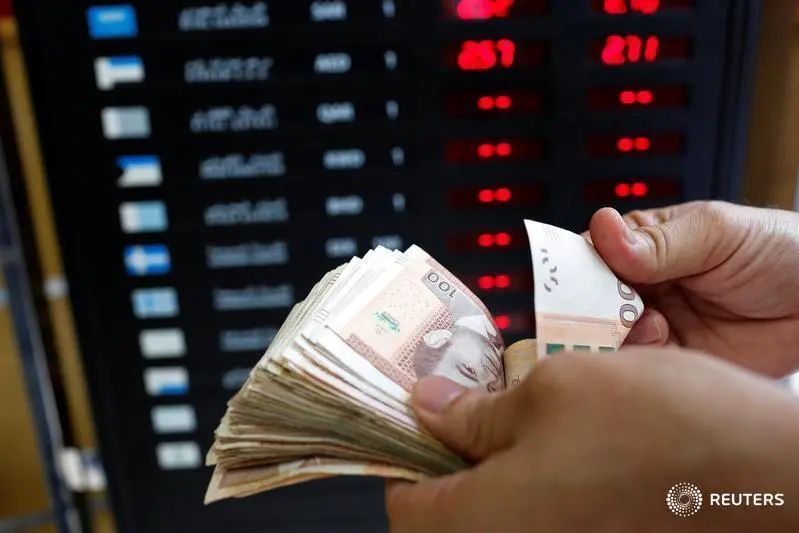PHOTO
RABAT - Morocco should have a national dialogue about the benefits and risks of its new flexible currency system, which will stoke inflation, the head of the state High Planning Commission told Reuters on Wednesday. The North African country this week introduced a more flexible foreign exchange system, part of free-market reforms recommended by the International Monetary Fund to protect the economy against external shocks and safeguard its foreign reserves.
Ahmed Lahlimi said it was too early to quantify the exact impact of the new flexible foreign exchange system on the economy but government and central bank needed to explain its necessity to the public.
"There should be a national dialogue for the government explaining the factors behind the decision," Lahlimi said in an interview. The planning commission is a body that compiles data and analysis economic factors.
The dirham has hardly moved since against major currencies, easing worries about a devaluation. The central bank has said it will counter any speculation using its reserves.
A lower dirham could stoke inflation as Morocco imports some of its food needs, hurting the poor.
When asked whether the dirham move would lead to higher inflation, Lahlimi said: "Certainly." He said Morocco would have to spend more next year on imports of wheat and other basic goods as well as spare parts.
This year annual inflation will rise to around 1.6 percent in 2018 from 0.2 percent last year as oil prices have been rising and because imports of food and other goods will become more expensive.
The new system widened the band in which the dirham can trade against hard currencies to 2.5 percent on either side of a reference price, from the previous 0.3 percent.
Lahlimi also said the government needed to invest more in education as Moroccans spent on average only four to five years in school, one of world's lowest rates.
Economic growth was likely to slow to 2.8 percent in 2018 from 4 percent last year because of lower agricultural production and overall weak industrial sector performance, Lahlimi said. More investment was also needed in farming industries to increase production, he said.
Morocco expects to harvest between 7 and 7.5 million tonnes of wheat this year, he said, although the farming sector is being affected by lower rainfall.
The number of foreign tourists visiting the kingdom is expected to rise, Lahlimi said. (Reporting by Ulf Laessing and Zakia Abdennedi; Editing by Catherine Evans and Grant McCool)
© Reuters News 2018
Ahmed Lahlimi said it was too early to quantify the exact impact of the new flexible foreign exchange system on the economy but government and central bank needed to explain its necessity to the public.
"There should be a national dialogue for the government explaining the factors behind the decision," Lahlimi said in an interview. The planning commission is a body that compiles data and analysis economic factors.
The dirham has hardly moved since against major currencies, easing worries about a devaluation. The central bank has said it will counter any speculation using its reserves.
A lower dirham could stoke inflation as Morocco imports some of its food needs, hurting the poor.
When asked whether the dirham move would lead to higher inflation, Lahlimi said: "Certainly." He said Morocco would have to spend more next year on imports of wheat and other basic goods as well as spare parts.
This year annual inflation will rise to around 1.6 percent in 2018 from 0.2 percent last year as oil prices have been rising and because imports of food and other goods will become more expensive.
The new system widened the band in which the dirham can trade against hard currencies to 2.5 percent on either side of a reference price, from the previous 0.3 percent.
Lahlimi also said the government needed to invest more in education as Moroccans spent on average only four to five years in school, one of world's lowest rates.
Economic growth was likely to slow to 2.8 percent in 2018 from 4 percent last year because of lower agricultural production and overall weak industrial sector performance, Lahlimi said. More investment was also needed in farming industries to increase production, he said.
Morocco expects to harvest between 7 and 7.5 million tonnes of wheat this year, he said, although the farming sector is being affected by lower rainfall.
The number of foreign tourists visiting the kingdom is expected to rise, Lahlimi said. (Reporting by Ulf Laessing and Zakia Abdennedi; Editing by Catherine Evans and Grant McCool)
© Reuters News 2018





















